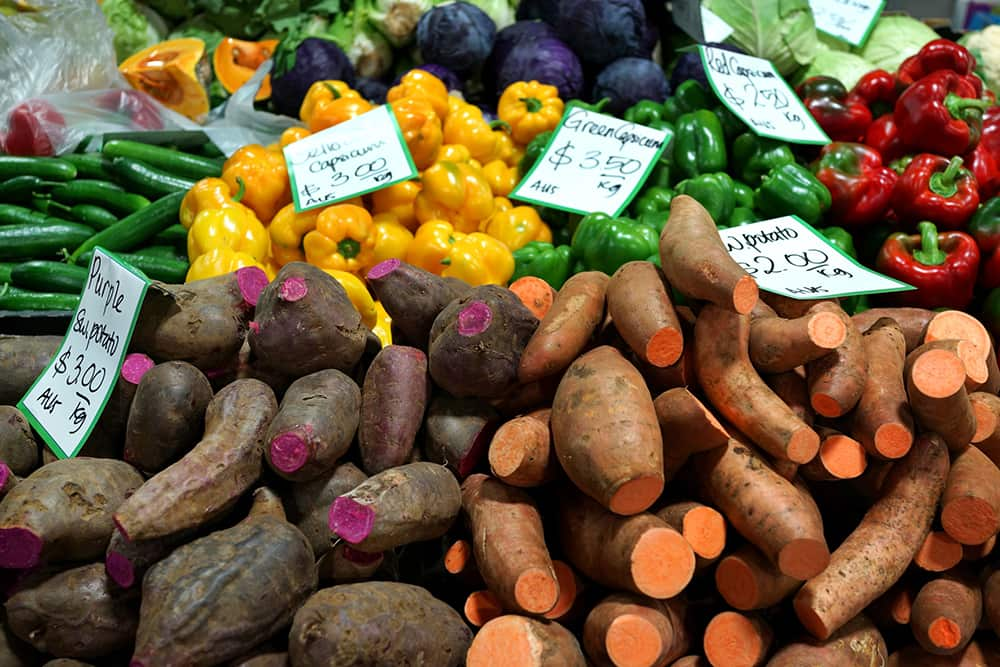“People often respond with surprise to being told that people go hungry in The Lucky Country,” says Dr Luke Craven, an affiliate of the University of Sydney's Sydney Environment Institute and consultant to the Sydney Food Business Incubator project. “The problem is largely invisible in public and political discourse, due to a lack of measurement and a poor choice of language.”
As many as 17,000 people in the City of Sydney council area are classified as ‘food insecure’, or unable to afford enough food for themselves or their families. A 2015 Salvation Army survey found 10% of Australians weren’t able to afford enough food to live comfortably, or even healthfully.
The number of people in trouble is only getting higher – from 2016 to 2017, there was a 10% increase in the number of individuals needing food relief from charities.
10% of Australians weren’t able to afford enough food to live comfortably, or even healthfully.
“As the gap widens between rich and poor, people with the power to change the system have less contact with those who routinely struggle to put good food on the table,” Dr Craven tells SBS.
“As the saying goes, you can’t fix a problem you can’t see.”
Access to healthy, nutritious food
The University of Sydney’s Environment Institute and the City of Sydney council are tackling the problem head on through their collaborative Sydney Food Business Incubator project. The project encourages disadvantaged community members to take an active role in ensuring their own access to healthy, nutritious food.

“This approach is innovative and multi-pronged,” says Dr Craven, who has worked closely on the mechanics of the project. “We’re fostering the development of food-based start-up businesses to provide opportunities for people who are disadvantaged to develop a sustainable income stream.
“We’re also strengthening social connection and community resilience amongst incubator participants, which creates a broader sustainable food production ecosystem in urban spaces, linking producers, manufacturers and producers with other actors in the food industry.”
We’re fostering the development of food-based start-up businesses to provide opportunities for people.
First Nations priority
The University and the council have taken cues from FoodLab in Detroit (a precursor for the Sydney model), Hot Bread Kitchen in New York City and La Cocina in San Francisco, as well as consultation with more than 2400 community members in the Sydney area. Particular attention has been paid to Indigenous peoples, a group that the Australian Institute of Family Studies found experiences food insecurity at a disproportionate rate.
“At the heart of the plan is our First Nations community,” says Lord Mayor Clover Moore. “With a pilot program employing Aboriginal guides that will help forge a greater connection between our city’s parks and open spaces and our vital Gadigal history.”
Dr Craven and his colleagues at the Sydney Environment Institute (Professor David Schlosberg, Co-Director, and Dr Alana Man, Key Researcher) consider countries like Brazil and Scotland leaders in the fight for food security. Brazil is famous for Belo Horizonte, a national zero hunger food program launched in 2003. Scotland is making major changes on a national level with Nourish, an NGO aiming to empower communities around issues relating to food justice through various campaigns and initiatives.
Sustainable models
These programs show that the key to solving food insecurity lies in sustainability.
We’re committed to making Sydney a city for all, where progress is measured by community resilience and social justice, not just productivity.
“The primary response is often emergency food provision,” Dr Craven notes. “These are band aid solutions that feed the hungry now, but are insufficient and inadequate for addressing the root causes of food insecurity, such as social exclusion, income poverty, and rising inequality.
“This system is just not sustainable for our disadvantaged communities, which is where the food incubator project comes in.”
The Sydney Food Business Incubator project is expected to run for three years, during which time its proponents are expecting Belo Horizonte and Nourish levels of change rippling throughout the Sydney area.
“We’re committed to making Sydney a city for all, where progress is measured by community resilience and social justice, not just productivity,” says Lord Mayor Moore.
Submissions for community feedback are open until May 25 – an opportunity for people to ‘pitch’ their food start-up business ideas, or name individuals and groups the Incubator project could work with.
To stay up to date with the project, visit Sydney Environment Institute’s website, and follow City of Sydney on Facebook and Instagram.
SBS Food is a 24/7 foodie channel for all Australians, with a focus on simple, authentic and everyday food inspiration from cultures everywhere. NSW stream only. Read more about SBS Food
Have a story or comment? Contact Us

